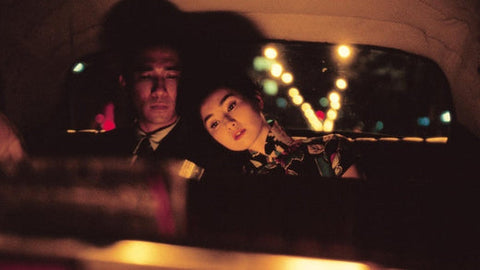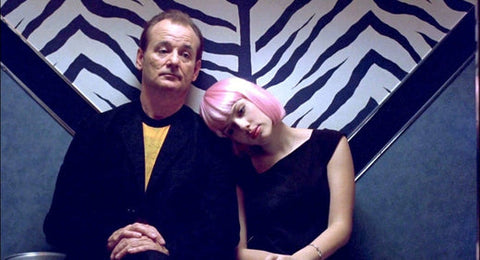
After returning to Hong Kong, there was a long silence between us. I found myself spending those days wondering what had gone wrong.
In the Mood for Love was a film we both adored. When we first met, he mentioned that being half Shanghainese made Pathe Wong’s Shanghai-accented songs feel nostalgic. I smiled and told him I was half, too.
Once, he asked, “Do you think Chow Mo-wan approached Su Li-zhen out of revenge?” I disliked the suggestion.
"But his gaze is strange. And what about his secret? What else could it be?"
"That would make Su so pitiable," I replied, unable to accept the idea.
Each time we rewatched the film, our interpretations of the characters' emotions shifted and deepened. Were we right? Maybe not. (That depends on whether you care about the author’s intentions—or, if you subscribe to Barthes’ theory, whether you believe the author is dead and irrelevant.) Regardless, at the time, we’d never experienced a love as intricate as theirs. Only later did I realise that, in some strange way, we were enacting our own version of In the Mood for Love. But unlike the film, our story wasn’t scripted. It was real.
I remember falling asleep on the plane, only to wake and find my head resting on his shoulder, covered by his shirt. I didn’t move. Through half-closed eyes, I watched his careful, quiet movements, as though he feared waking me.
"That was an awkward closeness.
She kept her head bowed,
giving him a chance to come closer.
But he lacked the courage.
He turned and walked away."
One night, at the guesthouse, we watched Sympathy for Lady Vengeance. (Yes, we both enjoy heavy films.) After it ended, he turned to me and said, “From this angle, you look like Maggie Cheung.”
I’d never seen my profile—just the front of my face, which bore no resemblance to hers. “Am I the beautiful Maggie Cheung or the not-so-beautiful one?” I teased.
"There is no such thing as a not-beautiful Maggie Cheung," he replied, with rare impatience.
It was the most romantic thing anyone had ever said to me. But instead of responding with equal tenderness, I played dumb. It wasn’t that we didn’t offer each other chances—it’s that we both lacked the courage to take them.
In the Mood for Love is a story about four people. So was ours. There was also her and him.
It wasn’t hard to find the woman on his Facebook. In the photos of them together, she was stunningly beautiful. He had never spoken of her, just as I never mentioned my ex, even though Hong Kong’s university circles were so small that he and my ex were Facebook friends. They even shared a similar taste in music.
We thought that trip might help us let go of her and him. But in the critical moments, it became clear we hadn’t. After all, our connection had begun because we both couldn’t let go. It started with One More Time, One More Chance, a song about yearning for what’s lost. A relationship born from lingering attachments was, perhaps inevitably, destined to end the same way.
"If I had one more ticket, would you come with me?" That line opens the soundtrack of In the Mood for Love. I remember when a commemorative vinyl edition was released. He queued on the day of its release and even offered to buy me one. That night, he played it on his turntable. “I started crying at that first line and didn’t stop,” he confessed.
For years, we wondered: if So Lai-chun had agreed to leave with Chow Mo-wan, would their story have turned out differently? Only now do I understand that even if they’d summoned the courage to run away together, at the wrong moment, it still wouldn’t have worked. That was Wong Kar-wai’s cruel joke, and perhaps ours too.
"If it wasn’t today, it would have been tomorrow. The key issue is that I couldn’t convince her. And why couldn’t I convince her? Because I couldn’t convince myself."
—South of the Border, West of the Sun, Haruki Murakami
When In the Mood for Love was released, I was too young to grasp its intricacies. I recently learned that Tony Leung and Maggie Cheung had fallen for each other during its filming but never acted on it. In an interview, Tony was asked which moment in his life he’d like to revisit. “When I was thirty-eight,” he said. “That was when I was filming In the Mood for Love.”
Tonight, I share his favourite Japanese song, Robinson by Spitz. The lyrics, though clumsily translated, capture a wistful longing for a shared summer. Perhaps that’s why it resonates—it echoes the season I’d most like to return to.


